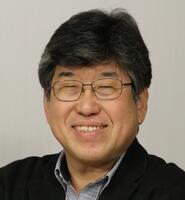Research Experience
-
2020-Now
Waseda University Center for Higher Education Studies (CHES)
-
2018-2020
Tokyo Institute of Technology Tokyo Tech Academy for Leadership
-
2016-2018
Tokyo Institute of Technology Institute for Liberal Arts
-
2015-2016
Tokyo Institute of Technology
-
1994-2015
Kanazawa Institute of Technology Academic Foundations Programs, Humanities and Social Sciences Program Professor
-
2004-
The Open University of Japan Visiting Professor
-
2003-2004
The University of Tokyo Visiting Professor
-
2003-
The University of Tokyo
-
1988-1998
The Natronal Museum of American History(Smithsonian) Graduate Student Fellow
-
1983-1989
The University of Oklahoma Teaching/Research Assistant


Click to view the Scopus page. The data was downloaded from Scopus API in February 26, 2026, via http://api.elsevier.com and http://www.scopus.com .